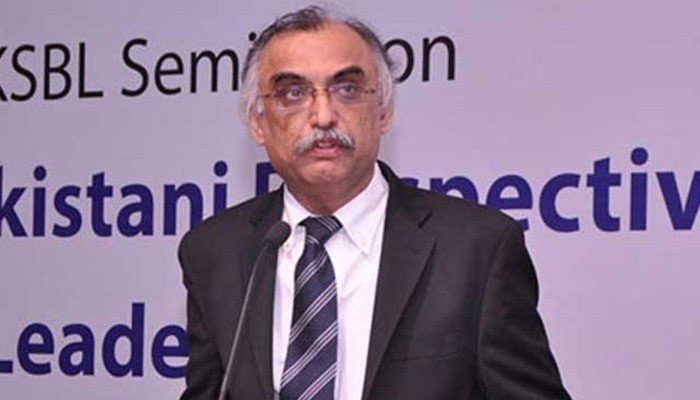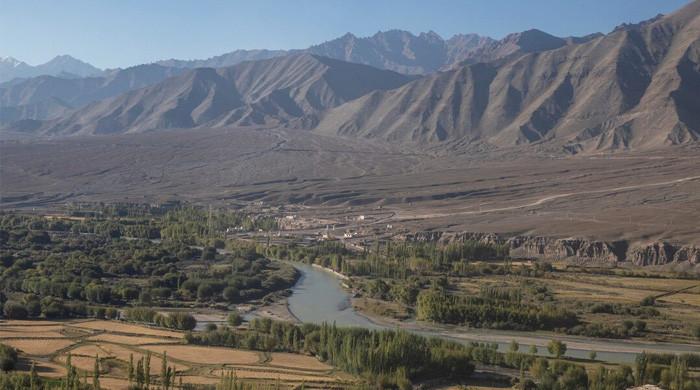(Opinion) Legally, new FBR Chairman Shabbar Zaidi's appointment is a problem
If challenged in court, the government will not be able to defend Shabbar Zaidi’s appointment as the FBR chairman
May 15, 2019

The centre of the debate around the appointment of Shabbar Zaidi, as the new chairman the Federal Board of Revenue (FBR), has raised a lot of questions regarding the transparency and merit of his appointment. Of which the most important and pertinent is: Has the federal government violated any laws to bulldoze through his employment? And are the violations enough to merit his removal?
The FBR chairpersons, in the past, have been appointed from within the hierarchy of the organisation. This time though, the prime minister has handpicked a man from the private sector, who happens to be a partner at one of the leading accountancy firms in the country.
Thus, the appointment was expected to cause a few legal and moral hitches.
Let’s first look at the notification of the appointment, which reads as:
“The Federal Government has been pleased to appoint Syed Muhammad Shabbar Zaidi, as Chairman Federal Board of Revenue, Islamabad on honorary basis, for a period of two years, with immediate effect and until further orders.”
The process for the selection of an FBR chairman is prescribed under Section 3(3) of the Federal Board of Revenue Act, 2007:
(3) The Federal Government may appoint the chairman on such terms and conditions as it may determine.
This leaves no room for uncertainty. Undoubtedly, the government has the discretion to appoint anyone it deems necessary. Furthermore, the law does not prescribe a criterion for the appointment.
However, separately, the Supreme Court of Pakistan has laid down some conditions in paragraph 36 of a judgment, reported as PLD 2012 SC 132: (i)Was there an objective selection procedure? (ii) Was there a reasonable nexus with aim of the statute? (iii) Was the procedure followed with rigour, objectivity, transparency and due diligence?
In 2013, the Islamabad High Court, while removing Arshad Hakeem, the former chairman of FBR, observed that Hakeem’s appointment was made without adoption of a competitive process and had directed the government to appoint a suitable person as FBR chief instead.
Both court rulings indicate that the government’s discretion is not unfettered. There are certain guidelines which need to be followed.
“Zaidi has made representations before the FBR on behalf of his clients for various clarifications and reconciliations. The existence of a conflict of interest in his appointment as chairman FBR may also need to be taken into consideration,” reads the summary of Cabinet Division presented before the cabinet, as reported by The News. The Black’s Law Dictionary, the most widely used dictionaries for law, defines conflict of interest as ‘a real or seeming incompatibility between one’s private interest and one’s public or fiduciary duties’. In light of this definition, Zaidi’s is likely to encounter a possible conflict.
There is another important question that will need to be addressed: What would be the fate of any attempts to challenge Zaidi’s appointment?
In my view, Zaidi may not be able to defend his position in case of a legal challenge as no competitive process appears to have been followed in appointing him. Furthermore, the honorary basis of the appointment does not absolve the government of its duty to follow the process as prescribed under various judgments of the courts. The position may be honorary but its charter of duties entail taking important decisions affecting the country, which must only be handled by someone who has followed the due process as envisaged under the law.
Zaidi is well-versed in Pakistan’s tax laws and key policy matters governing fiscal strategy, corporate regulations and foreign exchange regimes and has written extensively on the topics. His inclusion in the public sector would have been a welcome move, had all legal formalities been met.
Pansota is an advocate of the high court in Lahore. He tweets @pansota1
Note: The views expressed are those of the author, and do not necessarily reflect the official policy or position of Geo News or the Jang Group.











